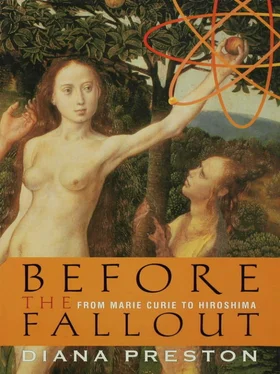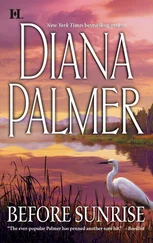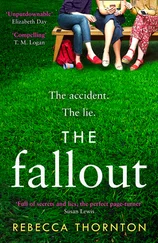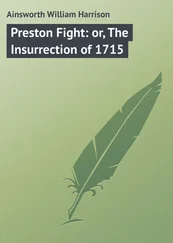“Although the sum.goodwill”: Segre, Enrico Fermi, p. 111.
“openness tampered with”: Teller, Memoirs, p. 143.
“Europe occupation”; “the doom idea”: L. Fermi, Atoms in the Family, pp. 144–45.
“You factory”: Teller, Memoirs, p. 143.
“philosopher’s stone”; “flow a hole Patchogue”: New York Times, 5 May 1939.
“Physicists Landscape”: Washington Post, 29 April 1939.
“I have decided practices”: Quoted in Jungk, Brighter Than a Thousand Suns, p. 75.
“Heisenberg… traitor” : Quotes in this paragraph are from W. Heisenberg, Physics and Beyond, p. 169–70.
“could influence… channels”; “no principles… grant you”; “Germany needed him”: Letter from Max Dresden to Physics Today, May 1991.
“Every one of us… environment”; “people… them”: W Heisenberg, Physics and Beyond, p. 171.
“there is now weapons”; “the war built”: Ibid., p. 170.
“lively and busy”; “a calm… stores”: Filmed survivor interviews in “The Restoration of the Hypocenter Salugakucho.”
“our present knowledge device”: Quoted in Hahn, My Life, p. 184.
“ This was… this occasion”: Weart and Szilard, Leo Szilard: His Version of the Facts, p. 83.
“great ability anonymity”: Jungk, Brighter Than a Thousand Suns, p. 85.
“I served as a pillar box”: Quoted in Snow, Variety of Men, p. 89.
“We really… limited to that”: Quoted in Jungk, Brighter Than a Thousand Suns, p. 86.
“the element future”; “lead air”; “watchfulness Administration”: Einstein’s letter to Roosevelt of 2 August 1939, quoted in Segre, Enrico Fermi, p. 113.
“Roosevelt was not… different course”: Quotes in these two paragraphs are from Jungk, Brighter Than a Thousand Suns, pp. 110—11.
“The cautionary… action!”: Quotes in this paragraph are from Lanouette, Genius in the Shadows, p. 210.
“the fear… by them”: W Churchill’s letter to the secretary of state for war of 5 August 1939 appears in his book The Gathering Storm, p. 301.
“I gather… our beds”: Letter from Lord Hankey to E. Appleton, 12 December 1939, CAB/104/221, PRO.
Nine. A Cold Room in Birmingham
“I am ready… help you”: J. Chadwick’s letter to L. Meitner of 11 September 1939, CCC/LM.
“porridge”: Quoted in Powers, Heisenberg’s War, p. 5 1.
“stinking steamer”: Quoted in P. Rowlands, 120 Years of Excellence, p. 18.
“witnessed great suffering”; “as a way people”: Author’s interview with J. Rotblat, 9 January 2002.
“first reflex… practice”; “I had no doubt… domination”: J. Rotblat, Bulletin of the Atomic Scientists, August 1985.
“great hopes one”: Author’s interview with Rotblat, 9 January 2002.
“ the worst slums you can imagine”; “not very encouraging generally”; “even… English”: Ibid.
“they were building”: Rowlands, 120 Years of Excellence, p. 17.
“and discovered… a.c”; “could you teach electricity”; “almost as though… horse”: Transcript of J. Rotblat’s interview of 7 January 1994 with C. D. King and A. Brown, LIV.
“very much liked himself”: Ibid.
“Oh good wife”: Ibid.
“worked bomb”; “the only wall… retaliate”; “never envisaged Germans”: Rotblat, Bulletin of the Atomic Scientists, August 1985.
“the only way… ourselves”; “he couldn’t advise… conscience”: Author’s interview with Rotblat, 9 January 2002.
“the last minute”: Ibid.
“there was. them”: Transcript of J. Rotblat’s interview of 28 October 1992 with Dr. Edwards and C. D. King, LIV.
“very very shaky”; “to go back… time”; “that we… bomb”: Transcript of Rotblat’s interview of 7 January 1994 with C. D. King and A. Brown, LIV.
“Chadwick’s reaction again”: All quotes in these two paragraphs are from Chadwick’s oral history, AIP.
“He just grunted”: Transcript of Rotblat’s interview of 7 January 1994 with C. D. King and A. Brown, LIV.
“It was apart”: J. Chadwick, Liverpool Daily Post, 4 March 1946.
“Chadwick came back each other”: All quotes in this paragraph are from the transcript of Rotblat’s interview of 7 January 1994 with C. D. King and A. Brown, LIV.
“it seems likely”; “could be developed conditions”: J. Chadwick’s letter to E. Appleton of 5 December 1939, CAB/21/1262, PRO.
“Rudolf Peierls… house”: Quotes in these two paragraphs are from Peierls, Bird of Passage, pp. 91 and 99.
“In 1935… combine”: All quotes in this paragraph come from O. Frisch’s oral history, AIP, except “to ponder… real physicist,” which comes from Biographical Memoirs of Fellows of the Royal Society (R. Peierls’s biographical memoir of O. Frisch).
“By then… fission: Quotes in this paragraph are from Frisch, What Little I Remember, p. 123.
“the water bedside”: Ibid., p. 125.
“There are… at first”: Quoted in M. Gowing, UKAEA official historian’s reprinted lecture, “How Nuclear Power Began,” p. 12.
“Suppose… happen?”; “The work… size”; “had tended… tons”; “about a pound”: Peierls, Bird of Passage, p. 1 54.
“such a lot”: Frisch’s oral history, AIP.
“thousands. explosive”; “We were having”: Peierls, Bird of Passage, p. 1 54.
“Look know about that?” Frisch’s oral history, AIP.
The Frisch-Peierls memorandum was in two parts—one technical and one nontechnical. The technical part was reproduced first as appendix 1 to M. Gowing, Britain and Atomic Energy, 1939–45. The nontechnical part was for a time lost but then found among Sir Henry Tizard’s papers and first published in R. Clark, Tizard. Both parts are reproduced as appendix 2 of F. M. Szasz, British Scientists and the Manhattan Project. All quotes in the last three paragraphs of this chapter come from the Frisch-Peierls memorandum, with the exception of “the order of magnitude was right,” which comes from Peierls, Bird of Passages, p. 1 54.
On the morning France: Quotes in this paragraph come from author’s interview with Goldschmidt, 3 April 1992.
“At any price Freiss”: Goldsmith, Frederic Joliot-Curie, p. 86.
“My mother… laboratory”: Quoted in Pflaum, Grand Obsession, p. 362.
“The collier… Castle”: All quotes in this paragraph are from L. Kowarski’s interview with the Radio Times, 20 September 1973.
“Met… Kent”: Quoted in Sime, Lise Meitner, p. 284.
“The Maud Committee… himself”: All quotes in this paragraph come from Frisch, What Little I Remember, pp. 128 and 130.
“the answers to important questions”: Peierls, Bird of Passage, p. 155.
“to decipher… were”: Biographical Memoirs of Fellows of the Royal Society (biographical memoir of F. Lindemann [Lord Cherwell]).
Читать дальше












